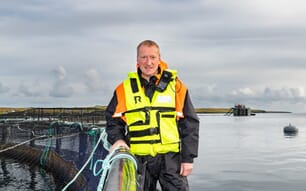"The green fisheries policy should be pursued in two aspects", says the Korean Herald, reporting on the Green Strategy. "Firstly, it is necessary to develop low-carbon and energy efficient fishing methods. For example, a light-emitting diode, which is energy efficient and very durable, can be used to attract fish."
The herald says that small fishing boats equipped with electric power engines also should be designed for coastal fishery. Other measures such as the limitation of coastal fishing boats' energy power and the individual transferable quota (ITQ) system can reduce fishing activities. Particularly the ITQ system can ease the excessive competition for fish and, as a result, reduce energy consumption.
"As for aquaculture, energy efficient systems should be developed. Building aquaculture with a circulation filtering system can be a good alternative as it reduces the consumption of fresh water and energy. Besides this, transportation for the distribution of products can be minimized if aquaculture farms are located near consumers.
"Secondly, the emissions of carbon dioxide during the distribution of fisheries products should be reduced. Food mileage, calculated by the quantity and distance of transport, must be monitored. To introduce a food mileage monitoring system, it is necessary to devise methods to calculate and manifest food mileage for major fisheries products. Also, emissions of greenhouse gases from refrigerated cars and equipment must also be reduced. For this purpose, the discharge of waste-cooling agents should be reduced and eco-friendly alternative cooling agents developed."
Korean Maritime Growth Focuses on Green Strategy
SOUTH KOREA - The Government of Korea are focussing on new environmentally friendly approach to maritime activities.


